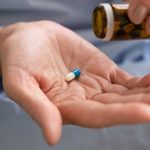Barbiturates are prescription drugs used to treat anxiety, insomnia, and seizures. As central nervous system depressants, they make you feel calm and relaxed.
Because barbiturates pose a high risk of abuse, addiction, and overdose, many doctors no longer prescribe them. However, the drugs often appear on the street, where they’re sold under various nicknames.
Street Names Of Barbiturates
The most common street names for barbiturates include:
- Barbs
- Block Busters
- Christmas Trees
- Downers
There are also unique street names for different types of barbiturates.
Amobarbital
Amobarbital is a blue capsule prescribed under the brand name Amytal.
Street names for amobarbital include:
- Blue Devils
- Blue Heavens
- Blue Velvets
Pentobarbital
Pentobarbital is a yellow capsule prescribed under the brand name Nembutal.
Street names for pentobarbital include:
- Abbots
- Mexican Yellows
- Nembies
- Yellow Jackets
- Yellows
Phenobarbital
Phenobarbital is a white capsule prescribed under the brand name Luminal. Its street names include Goof Balls and Purple Hearts.
Secobarbital
Secobarbital is a red capsule prescribed under the brand name Seconal.
Street names for secobarbital include:
- F-40s
- Lilly
- Phennies
- Pink Ladies
- Pinks
- Red Birds
- Red Devils
- Reds
- Seggy
Tuinal
Tuinal is the brand name of a medication that consists of amobarbital and secobarbital.
Street names for Tuinal include:
- Double Troubles
- F-66s
- Gorilla Pills
- Rainbows
- Reds And Blues
- Tooies
Dangers Of Barbiturates
Along with making you feel calm and relaxed, barbiturates can cause a sense of euphoria (intense joy). That’s why some people abuse them. Barbiturate abuse occurs when you use a barbiturate in a manner not prescribed by your healthcare provider.
For example, you might take it more frequently than prescribed, take higher doses than prescribed, or mix it with other drugs.
Like other types of substance abuse, barbiturate abuse poses a high risk of addiction and overdose.
Barbiturate Addiction
Barbiturate addiction is a disease that makes you feel unable to stop using barbiturates. The most common symptoms are tolerance and physical dependence.
Tolerance means that your body gets used to the effects of barbiturates over time. You’ll then need larger or more frequent doses to feel the desired effects.
Physical dependence means your body starts relying on barbiturates to function normally.
If you stop using the drugs, you may experience withdrawal symptoms such as:
- anxiety
- depression
- mood swings
- irritability and aggression
- hallucinations (seeing, hearing, or feeling things that aren’t there)
- trouble sleeping
- nausea and vomiting
- weakness
- shaking
- seizures
You face a higher risk of withdrawal symptoms if you quit barbiturates too quickly or without professional help.
In addition to tolerance and physical dependence, other symptoms of barbiturate addiction include:
- strong cravings for barbiturates
- doctor shopping (visiting multiple doctors to get multiple prescriptions of barbiturates)
- mood changes
- loss of motivation
- loss of interest in activities once enjoyed
- isolation from friends and family
If you or someone you love experiences these symptoms, seek help at a drug addiction treatment program.
Available on an inpatient or outpatient basis, these programs help people stop using barbiturates with minimal withdrawal symptoms. They also offer therapy and support groups to ease barbiturate cravings and reduce the risk of relapse.
Barbiturate Overdose
A barbiturate overdose occurs when you abuse barbiturates to the point where you experience harmful symptoms.
Symptoms of a barbiturate overdose include:
- drowsiness
- nausea
- slurred speech
- trouble thinking
- impaired coordination
- loss of consciousness
- enlarged pupils
- slow heart rate
- low blood pressure
- shallow breathing
Seek medical help right away if you or someone you know experiences these symptoms. When left untreated, a barbiturate overdose can be fatal.
Get Addiction Treatment
If you or a loved one struggles with barbiturate abuse, please contact Northeast Addictions Treatment Center. We offer medical detox, mental health counseling, and other evidence-based, recovery-focused services.
Sources
Written by
Northeast Addition Editorial Team
©2024 Northeast Addition Center | All Rights Reserved
This page does not provide medical advice.



